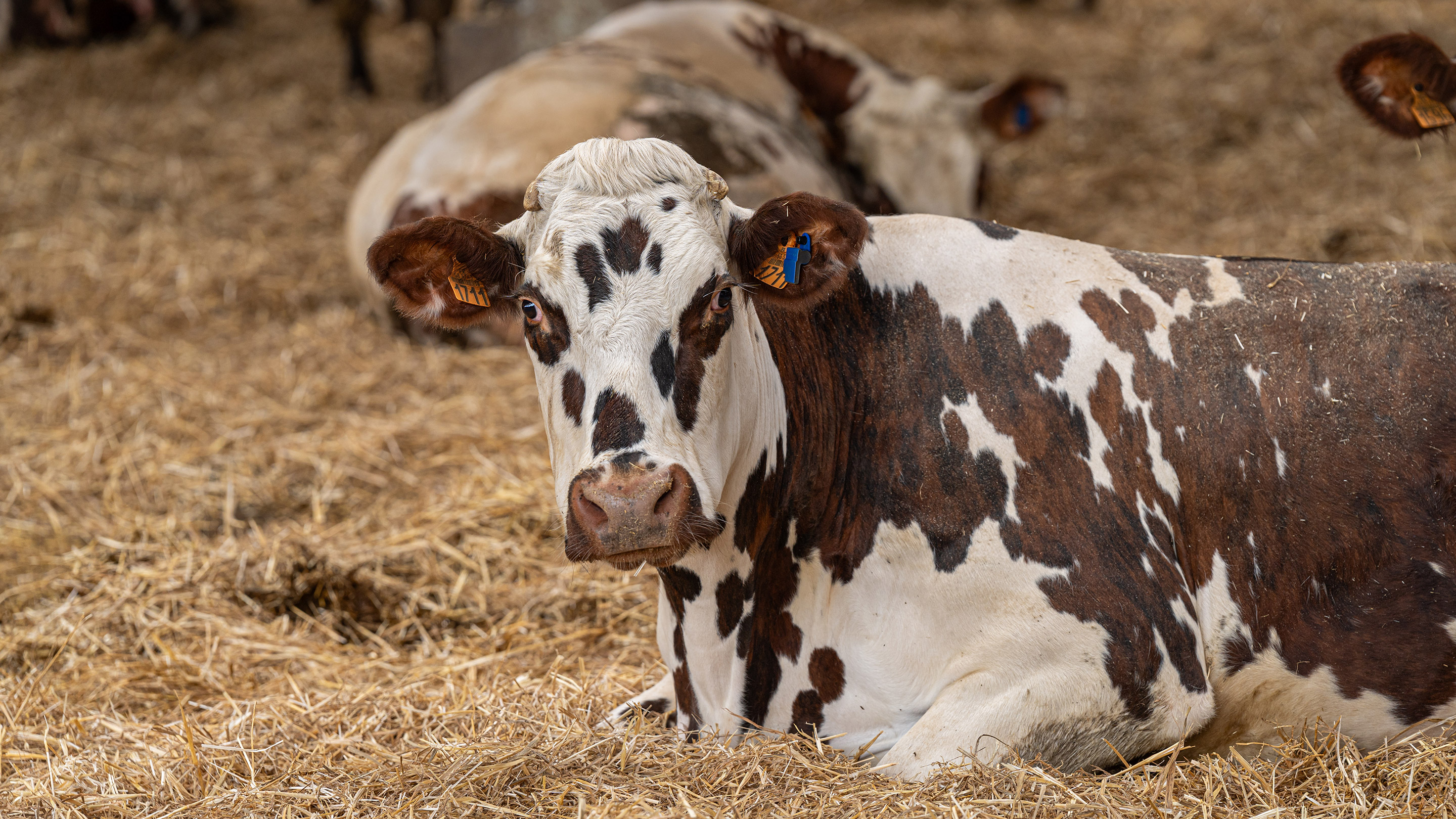The importance of dairy – now and in the future
Dairy foods are rich in high-quality protein and essential nutrients, making the dairy sector a significant contributor to the Sustainable Development Goals (SDGs) on zero hunger, and health and wellbeing. Additionally, dairy cows play a crucial role in converting inedible or less nutritious foodstuffs into valuable, nutrient-dense products.
Like all foods, dairy has an environmental impact. However, advancements in dairy farming technology are transforming the industry, enabling farmers today to optimise their production, produce more with fewer resources and significantly reduce their environmental footprint. In many ways, the future of the dairy industry is already here.
Innovating for a more sustainable dairy industry
“At DeLaval, we strive to make our products and solutions as sustainable as we possibly can – to help dairy farmers reduce their impact and contribute to more sustainable food production,” declared Anna Lindquist, Director Strategic Program Office at DeLaval, who works with strategy and sustainability in the product development department at DeLaval. “With approximately 70% of our climate footprint coming from the use phase of our products, continuously developing more efficient products and solutions is where we can have the greatest positive impact.”
Developing products that enhance farm efficiency must go hand in hand with promoting animal welfare. Healthy, calm cows naturally produce more milk, boosting farm productivity while reducing environmental impact – a win for farmers, animals and the planet.
“It is so important that we develop products and solutions that do not stress or hurt cows and that we consider animal behaviour.”
“It is so important that we develop products and solutions that do not stress or hurt cows and that we consider animal behaviour,” said Cecilia Bågenvik, Vice President Animal Intelligence & Welfare Solutions at DeLaval. “We know that when we focus on animal welfare, our customers can run more sustainable dairy farms with higher milk production.”
Digitalisation – a key trend shaping the future dairy industry
The dairy industry is being increasingly influenced by digital technology, which is transforming practices through automation and optimising processes such as milking, feeding and monitoring. These advancements enhance resource efficiency, improve animal welfare, save time and money, and empower farmers with smarter decision-making and greater collaboration.
“Digitalisation offers huge opportunities to not only ensure food safety and milk quality, but to also monitor cow health and even identify the risk of cows at risk of disease.”

“Digitalisation offers huge opportunities to not only ensure food safety and milk quality, but to also monitor cow health and even identify the risk of cows at risk of disease,” said Kieran Fitzgerald, Vice President Digital Services Product Management at DeLaval.
The DeLaval Plus Predictions Disease Risk application that accurately predicts the risk individual cows are at from diseases is set to become an essential tool for farmers. How DeLaval is partnering with Deere & Company (John Deere) on the Milk Sustainability Center is another example of how a digital ecosystem can help farmers to reduce their climate impact.
“We are gathering more and more data from various farm sensors to measure everything from milking to cow behaviour, to help calculate disease risk with the help of artificial intelligence algorithms,” said Fitzgerald. “This will allow our tools to become increasingly accurate as we continue to add more disease screening and functions to our digital services in the future.”
Laying the foundations for the dairy industry
“Collaboration and sharing data with new and existing partners – and even our competitors – is also driving the development of the industry,” claimed Bågenvik. “Working together in areas such as feed nutrition, genetics and milk processes creates mutual benefit for all parties.”
Another important step has been DeLaval’s lifecycle analysis (LCA) tool that was implemented in 2024 to identify opportunities to reduce its own environmental footprint and develop more sustainable products.
“Drawing on such innovative partnerships and advanced tools are helping us to lay the foundations for the dairy industry of the future that enables farmers to both be more profitable and sustainable,” concluded Lindquist.
Farms shaping the future
At DeLaval, we are dedicated to helping dairy farms excel in both sustainability and profitability. After all, these farms not only help us enhance our customer offering but also help shape the industry of the future. Here are a couple of examples of such DeLaval customers.
Country Aire Farms, Wisconsin, USA
The fourth-generation family farm established in 1923 has embraced state-of-the-art dairy solutions to enhance both technological and labour efficiency. Country Aire Farms uses the DeLaval Rotary E500, DeLaval teat spray robot TSR, DeLaval Evanza™ milking clusters and DeLaval Flow-Responsive™ Milking to milk their 4,300 cows.
The team can also run everything from fans to lights, pumps and sprinklers with their phones.
Country Aire Farms grows alfalfa, wheat and corn on 7,400 acres that it uses to feed its herd. Manure is processed in a digestor to reduce waste and greenhouse gas emissions before being used to irrigate the fields.

Pepper Dairy, Texas, USA
Owned by Aurora Organic Dairy, the farm was the first in the USA to adopt VMS Batch Milking and installed 22 DeLaval VMSTM V300 units in 2022 to efficiently milk 2,000 cows. The farm has invested in automated milking robotics in recent years to help overcome labour costs and shortages, while promoting udder health and providing the team with actionable cow data.
As a Quality Assurance International (QAI) Certified Organic and pasture-based farm, it aims to reduce its environmental impacts and aspires to help protect, renew and restore the planet’s resources while delivering benefits to its business, animals, people and communities. Through an on-site solar array installed in 2024 and by supporting third-party off-site renewable energy and carbon reduction projects, the farm has achieved its carbon-neutral energy goal since 2020. Pepper Dairy is also Validus Certified for Animal Welfare, Worker Care and Environmental Stewardship.

